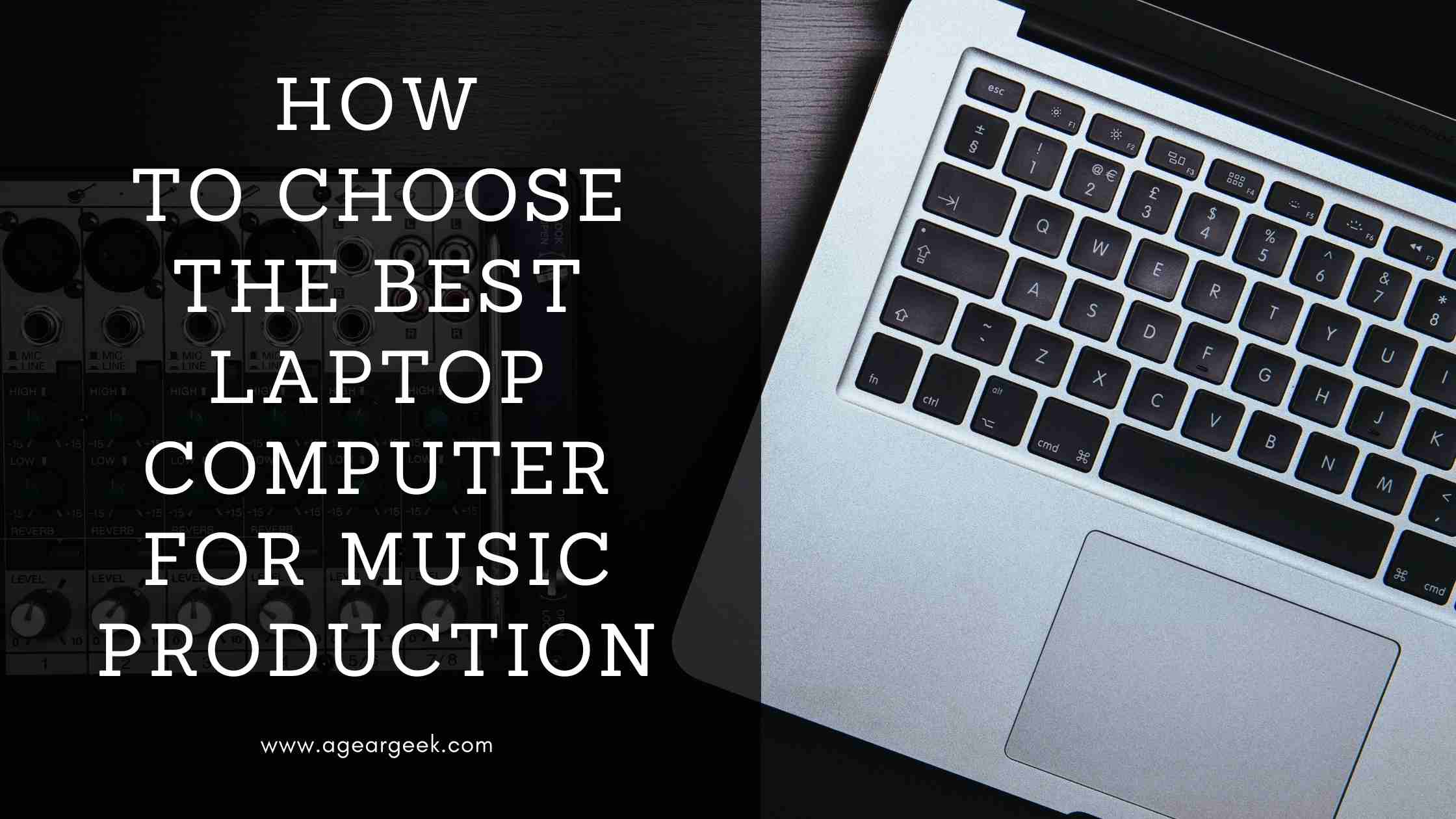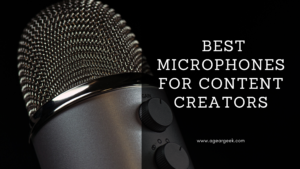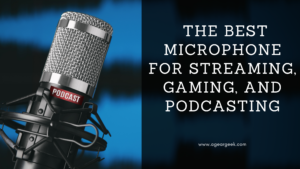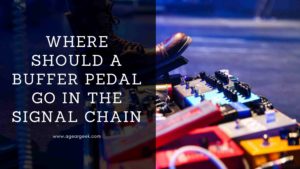At the heart of any music production, you need a trustworthy computer or laptop. The importance of choosing the right laptop for your music needs will make the entire experience a lot smoother and more reliable. In this article, we will go over the components to choose the best laptop for music production. We will also leave some recommendations.
Disclosure: We’re an affiliate. We hope you love the products we recommend! This post contains affiliate links. If you use these links to buy the products, we may earn a commission from the qualified sales. These are at no additional cost to you. Thank you if you use our links, we really appreciate it!
Mac vs Windows
Objectively speaking, windows laptops provide a far greater value for money as compared to Macbooks. Macbooks are great for music production, they are very reliable, current models come with 8 core apple M1 CPU with 16 GB RAM. If you are a lover of Logic Pro, then Apple is the way to go. They are great systems and go for it if you are brand loyal and have extra money to invest in one. The Macbook Pro 16” is a good option.
No products found.
Maybe a few years back Apple was the go-to system for music production, but with every passing year, this has changed. Now windows laptops also provide the same reliability and almost all DAWs (except Logic Pro) are compatible with windows.
This means Windows offers a better value for money for the investment for music production. In fact, the best value of a windows system comes in the form of desktop computers. Desktop computers offer infinite possibilities of customization and upgrade potential for the future. Perhaps at the price of an entry-level Mac you can build a robust windows desktop system, not only for music but also for video, and good for the next 3 – 5 years. These will beat a Mac hands down.
No products found.
No products found.
Gaming Laptops for Music
Perhaps the thought of Gaming Laptops can cross the mind. So, are Gaming Laptops good for music production? The answer is perhaps No but depends on your laptop usage.
Gaming laptops due to the nature of the application, generally have premium graphics cards in them. These are expensive components but have ZERO use in music production. So, though it might seem they are good options but in reality, a waste of a bunch of money on specs that you might not use unless you are also a gamer.
Let’s understand the components of a laptop and their use in music.
Processor
CPU or Central Processing Units are at the core of a laptop. This is also called the processor and is one of the key components responsible for a smooth experience. The CPU is like the brain of your computer. The quicker the CPU the better is the experience. This is a key component in protecting your projects from crashing due to the system not able to handle the DAW and you starting afresh once again.
The processor is responsible for processing the various plugins and effects which you use in your projects. The more the number of plugins and effects are used, the more CPU power is required. In addition to this, if you want to reduce the buffer size in your production and reduce latency, it will take more CPU bandwidth.
All these take an insane amount of CPU power. As a result, your work might take longer to be rendered, edited and if the load is too much for the CPU then your DAW will crash. In such a case you need to start afresh.
CPU Recommendation
Though most of the DAWs recommend at least an Intel i5 or AMD R5 and above, to get the reasonably good performance it is recommended to go for i7 of the latest generation with minimum of 4 cores.
Ableton Live (it’s a Digital Audio Workstation or also called a DAW) recommends a CPU with a minimum 2 GHz of clock speed with min 2 cores. In my opinion, this is the bare minimum or might be okay for very basic projects. In addition to the DAW and the associated plugins, your CPU needs to support the operating system as well.
Though clock speed is important but more important is the number of cores. In the simplest of terms, a core is another processor in the same shell. Both the speed and the cores are important and for a good performance, at least a multi-core CPU (of 4 and above) and with a decent speed is what you should be gunning for. The larger the number of tracks, the need will be more the number of cores.
Memory
Memory in a computer relates to RAM. RAM stands for the Random-Access Memory. This is the memory that your computer relies on for information it needs on an immediate basis. In music production this comes second to the CPU in ensuring the response of the laptop or computer and how smooth is the performance.
Working with large sample-based instruments will require a lot of RAM. Though it is normally fine to have 8 GB RAM but to have better performance 16 GB is recommended.
RAM used to be extremely expensive in the early days of computing but thankfully now they are much more affordable and even 32 GB RAMs are very affordable. If you prefer, you can start with 8GB with a future upgrade potential to 16 GB. For this, you need to be sure of the max RAM the laptop can take and the slots available.
Storage
For music production, you will need a laptop computer with a lot of storage and there are primarily three options – Hard Discs (HDD), Solid State Drive (SSD), or a hybrid of both of them.
Hard Drives are slower and less expensive while SSDs are faster and more expensive. It is always better to go for SSD which has a very fast launch time as compared to HDD. Hard Drives are essentially a spinning disc while SSD is like flash memory, like a USB stick. SSDs are also easier on the battery of the laptop.
In terms of the space for storage, this can be managed with the additional help of an external drive. The idea here is to keep the software apps, plugins, etc in the internal drive and use external working hard drives for other storage. Here you can use a 256 or 512 GB internal SSD drive while a much larger (1 TB) for the external working drive.
No products found.
But if the objective of using a laptop is to be mobile and being light, then using an external drive for non-system files defeats the purpose in a way. So, if you are one of them who wants to be light and easy to travel without having the headache of misplacing the external drive etc, then go for a 1TB of internal storage. SSD is the best but if you prefer HDD, go for at least 7200 rpm.
No products found.
No products found.
It is also a good idea to have an external drive to back up your projects and data after every use. Archiving as an action after every day of use can provide you with peace of mind and save you from any unexpected crash if that happens. Archiving in the cloud is also a good option.
The Screen
This is something that people often do not consider important when purchasing a laptop for music. Most DAWs or using different plugins becomes a lot easier to work on a larger screen. 13-inch screens from this perspective become quite cumbersome to work with. Many of the DAWs and plugins do not take into consideration 13-inch screens for resolutions.
Working on a smaller screen can be quite a frustrating experience. You might have to scroll right or left and up and down to get the same work done without any scrolling on a 15 or 17-inch screen. Especially for music purposes if you can have a 17-inch screen is the best, though it tends to get a bit bulkier. Otherwise, 15 inches is a decent option.
The other option is to use a larger external monitor when you are working from your home studio. A larger external 24 “or 27” inch monitor makes your life a lot easier behind the laptop. There are very small price differences between a 24” and a 27” inch and if possible, go for the larger one.
No products found.
Mouse
No products found.
I believe this inexpensive investment along with a laptop can make your life a lot easier. The trackpads have their advantages for normal usages. But when you are using a laptop computer for music production, you will need precision to select sections in tracks, on-off effects, meddle with controls, etc and the mouse acts as a godsend here.
Keyboard
This might look rather unimportant but has tremendous utility in music production and also in a live situation. Try to choose a laptop computer with a backlit keyboard feature. Whenever you are in the music production or music playing space, you need to be armed to work in different external lighting conditions. Having a backlit keyboard helps here.
Recommended Laptops
Here is a list of 4 laptops which we have found to be good especially for music production. These are safe options and going for any of these will only help you in your production needs.
No products found.
No products found.
No products found.
No products found.
Summing Up
Having the right laptop computer for your music production journey is key. If you think you have an old laptop and unsure if that would work for you, I recommend you download a free DAW and check if the system can take it.
Keep in your mind that laptop is only one of the requirements, you will still need Studio Monitors, Microphones, Headphones, etc. You can get a detailed guide on home recording studio essentials here. So, you need to ensure you budget for all of these and plan your investments. Happy music producing!.
Last update on 2025-06-03 / Affiliate links / Images from Amazon Product Advertising API





